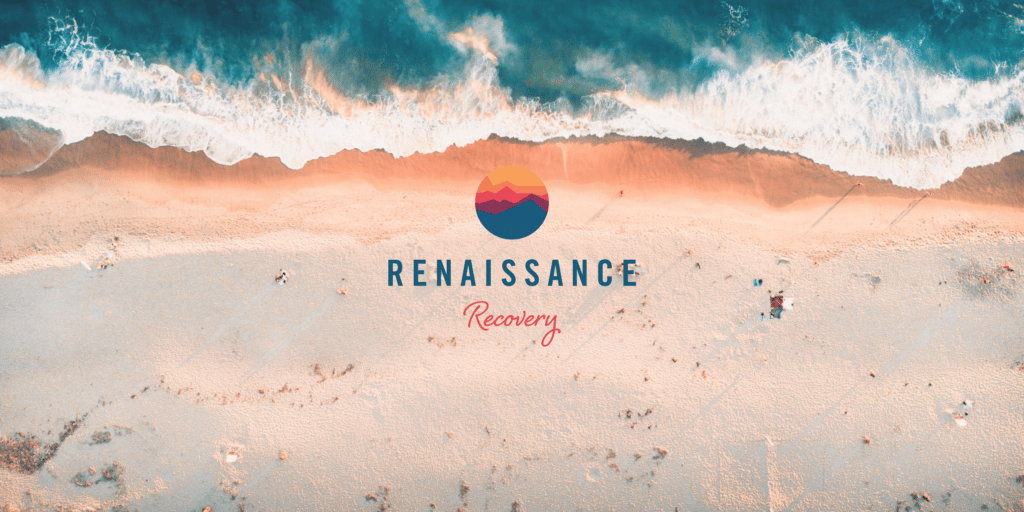There is no fixed blueprint for learning to live sober, but you can use many strategies to help you enjoy sustained recovery without relapse.
The latest National Survey on Drug Use and Health data (NSDUH 2020) shows that 40 million adults in the United States have substance use disorder and 28.5 million have alcohol use disorder. Even more disturbingly, research shows that only one in ten people with substance use disorder receive any form of addiction treatment.
Learning to live sober starts by engaging with the right rehab for your needs, whether inpatient treatment, a regular outpatient program, or more intensive forms of outpatient programming like an IOP (intensive outpatient program) or PHP (partial hospitalization program).
The more of the strategies we explore today you can adopt, the more you can strengthen your sobriety after leaving rehab.
Learning to Live Sober Again
If you want to learn to live sober, approach sobriety patiently and with discipline. You’ll soon find the rewards of a sober life start stacking up exponentially.
Every person is different, and every addiction is different, but following this framework will help you stay focused on the manifold benefits of sobriety even when faced with temptation or cravings.
1) Get a grip on your personal triggers
Most estimates show that between 40% and 60% of those with substance use disorder will relapse at least once during recovery. After all, addiction is a chronic and relapsing condition.
One of the most effective ways of preventing relapse from derailing your recovery is to become confident at identifying your personal triggers for substance abuse.
External triggers are typically the people, places, or things that elicit cravings for substance abuse. The thoughts, emotions, and feelings you associate with substance abuse can be classified as internal triggers.
Some common triggers include:
- Emotional distress
- Everyday stress
- People still using substances
- Environmental cues
- Financial problems
- Trouble at work
- Relationship issues
Once you are aware of the biggest risks to your ongoing sobriety, you can create a strategy to avoid them, or at minimum to better prepare for these triggers.
2) Understand the warning signs of relapse
Even if you are clear about what triggers you to crave substances, and even if you have a relapse prevention plan in place, you should also develop a keen insight into the warning signs of relapse.
Relapse can begin long before you reach for drink or drugs.
There are three distinct phases to relapse:
- Emotional
- Mental
- Physical
Some of the most typical warning signs of impending relapse are as follows:
- Behaving less responsibly
- Thinking less clearly and rationally
- Seeking out situations where people will be drinking or using drugs
- Returning to self-defeating thought patterns
- Engaging in compulsive behaviors
- Believing that substance abuse would be a logical way to soothe pain
Lean heavily on your sober support network if at any stage you feel your hard-won sobriety is being threatened.
3) Sidestep your old habits and routines
For many people, learning to live sober is made more challenging by clinging to old habits and routines. If you return from rehab without making any changes and still hanging out with the same people in the same places, there is more chance you will slip back into patterns of substance abuse.
Avoiding bars and the people you obtained drugs from is the obvious starting point. You should also consider severing any genuinely toxic relationships – more on that below.
You may find you need to change your route to and from work to avoid any external triggers liable to induce cravings. Driving past your favorite bar or dispensary after a hard day at work could prove too much to resist in the early phase of recovery.
Before we dive deeper into how you can create a new and meaningful routine, a word of warning…
4) Strive for balance: do not replace one addiction with another form of compulsive behavior
A common mistake made by those new to recovery – especially those who white-knuckle sobriety without engaging with treatment – is substituting one addiction or compulsive behavior for another.
If you find yourself approaching your exercise regime, your diet, or even 12-step support groups, with a vigor and compulsion echoing your addiction, take a step back and assess your behaviors, dialing things back if necessary.
Even if these new activities are healthy, they can still become barriers to lasting recovery if they lead to an imbalance in your life.
In this position, the most positive thing you can do is embrace your ability to maintain control and ensure you do not end up with a new and potentially damaging compulsive behavior.
5) Sever toxic relationships and build a new sober network
Many people abusing drink or drugs find lots of their friendships are grounded on substance use.
When substance abuse pervades relationships, these relationships often become toxic as a result.
Newly substance-free, you can now enjoy fresh, sober relationships, while at the same time pulling the rug on the toxic relationships no longer serving you. The more fully you develop assorted relationships based on mutual respect, shared interests, and understanding rather than hanging out with drink or drug buddies, the more you can embrace sober life for all it’s worth.
6) Create a structured schedule
Active addiction to drink or drugs frequently leads to a disorganized, chaotic lifestyle, especially with more severe substance use disorders.
When you complete your treatment program, you should develop a structured schedule and stick to it.
The more structure you have in your sober life, the less likely you will be to start feeling bored and restless.
A rigid routine can also help you achieve other life goals, whether short-term targets like being on time for work, or long-term aims like a career change or returning to school. While staying sober should be your overarching goal, pursuing other healthy goals can help you to consolidate and maintain your sobriety, filling you with increased enthusiasm for life.
7) Develop new interests
Even if you create and adhere to a schedule, you may still feel a void in the absence of substance use. This is normal. Using drink or drugs can consume huge chunks of time, and most people addicted to substances give up favored activities to usher in more time for substance use.
Throughout your treatment program, you will be actively encouraged to reconnect with the neglected activities you used to love. You will also be urged to explore new activities to stay engaged and happy, while minimizing the risk of boredom and relapse.

8) Focus on healthy living
Chronic and sustained substance abuse exerts a heavy toll on your health, both physically and emotionally.
You can start addressing some of this damage by prioritizing self-care, and by focusing on the following:
- Concentrating on sleep hygiene to get the right quality and quantity of sleep
- Eating a healthy diet, minimizing processed foods, and eating as many healthy, whole foods as possible
- Supplementing your diet with vitamins and minerals if necessary
- Staying properly hydrated
- Exercising for at least thirty minutes daily
- Practicing relaxation techniques like yoga and mindfulness meditation
- Devoting time for hobbies and leisure activities
9) Work out a budget and stick to it
Now you are no longer spending a sizable chunk of your income on substances, it may feel as if you have a surplus of cash. More likely, though, you will find yourself spending that money elsewhere unless you take affirmative action.
The more confident you become at budgeting, managing, and saving, the more comfortably you can live. Create more financial stability for yourself, now and in the future, by working out a budget and ensuring you stick to it.
10) Release guilt and learn how to live sober and happy
With most of the hard work done, you should find sober living becomes less demanding and more enjoyable.
Don’t forget to release all guilt about past transgressions. Beating yourself up about things you said and did in the throes of addiction will do little to help you heal and move forward. Even if you have hurt your loved ones, the most effective amends you can make are to stay sober and happy. The benefits you enjoy will soon ripple outwards into your friends and family.
Getting Sober at Renaissance Recovery
Maybe you haven’t yet committed to recovery, but you are ready to unshackle yourself from the chains of addiction. If so, our evidence-based outpatient programs can help you to get back on track
Through a combination of medication-assisted treatment, psychotherapy, and counseling, you will build a firm foundation for sustained sobriety. As well as detoxing and becoming substance-free, you’ll also discover how to live a sober life here at Renaissance
Learning to live sober can be difficult, but at Renaissance, you will have access to our alumni program and all the aftercare you need to avoid relapse while embracing your newfound sobriety. Make all this happen and reclaim your life by calling 866.330.9449 today.










